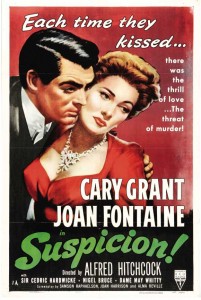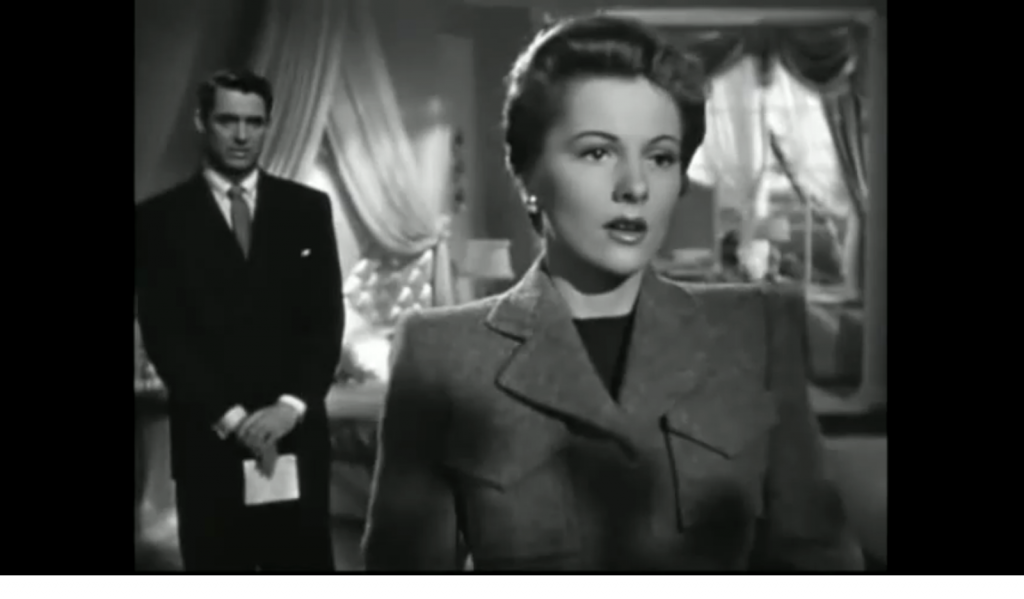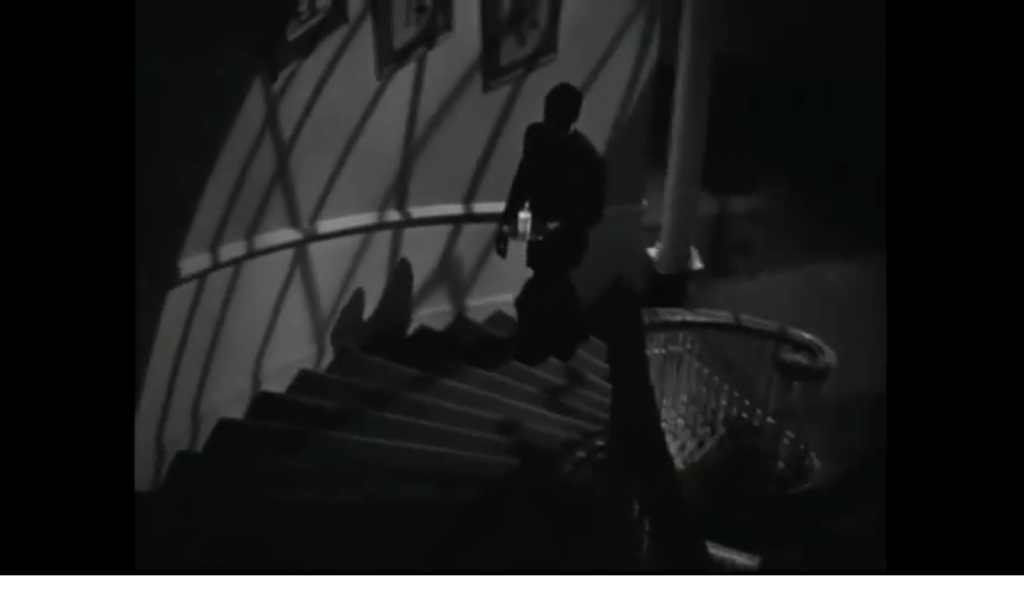Suspicion (1941)
“Johnnie, I’m just beginning to understand you.”
|
Synopsis: |
|
Genres, Themes, Actors, and Directors:
Response to Peary’s Review: It’s relatively easy to accept Fontaine’s whirlwind marriage to Johnnie as the consequence of an overly sheltered young woman fearing spinsterhood (certainly plenty of naive, desperate women in real life have married cads or outright psychopaths out of similar motivations) — but once she learns about his lies and financial indiscretions, there’s no excuse for her hesitation in getting out. We’re meant to believe that she simply can’t help herself (she’s too in love with Johnnie), but I don’t buy it. (Interestingly, she’s never given reason to worry about him cheating on her with another woman — which indicates that perhaps women will put up with a lot of nonsense in a marriage as long as they don’t believe their primacy as “woman number one” is being threatened.) Meanwhile, other elements of the screenplay are clumsy as well: how convenient is it, for instance, that Johnnie and Lina happen to be friends with a mystery novelist (Auriol Lee) who’s exploring various methods for untraceable murder? The origins of this friendship are never explained, so it comes across as simply a plot contrivance. With that said, Fontaine’s Oscar-winning performance — in a decidedly imperfectly written role — is fine, and film fanatics will likely be curious to see the movie for this reason alone. Redeeming Qualities and Moments: Must See? Categories
Links: |



One thought on “Suspicion (1941)”
Not must-see. As per my post in The ’40s-’50s in Film (on facebook):
“After all, it’s Johnnie!”
‘Suspicion’ (1941) [streaming on FilmStruck]: On the heels of his terrific ‘Rebecca’ & ‘Foreign Correspondent’ (and even his more interesting foray into straight comedy, ‘Mr. & Mrs. Smith’), Hitchcock unfortunately brings us this preposterous film. As Lina, Joan Fontaine overhears her parents bemoaning the fact that she’s likely to become a spinster. She therefore (literally) throws herself at (and marries) the first man who has been especially nice to her (Cary Grant). As Johnnie, Grant plays one of the most annoying, most irresponsible men in cinema. He is a gambler and always broke. But that doesn’t stop him and Lina from living in a drop-dead-gorgeous home or her from wearing one chic outfit after another. All Lina does is worry, go riding and for walks into town to buy her husband detective novels. Johnnie has a habit of calling his wife ‘Monkeyface’ – which she seems to find endearing, or at least she tolerates it; personally, I’d kill him. 😉 Slowly, Lina wonders if all is well in her husband’s head – and Hitchcock goes into overdrive with the – well… suspicion! …Fontaine won on Oscar (the only time an actor in a Hitchcock film won one). If I had been her, this would have been my acceptance speech: “This is too kind of all of you – insanely kind. I know the competition isn’t fierce his year, but I’m assuming you have all seen Bette Davis in ‘The Little Foxes’. I didn’t do much up on that screen except whimper and whine. This Oscar belongs to Bette and I’m handing it over with admiration!”